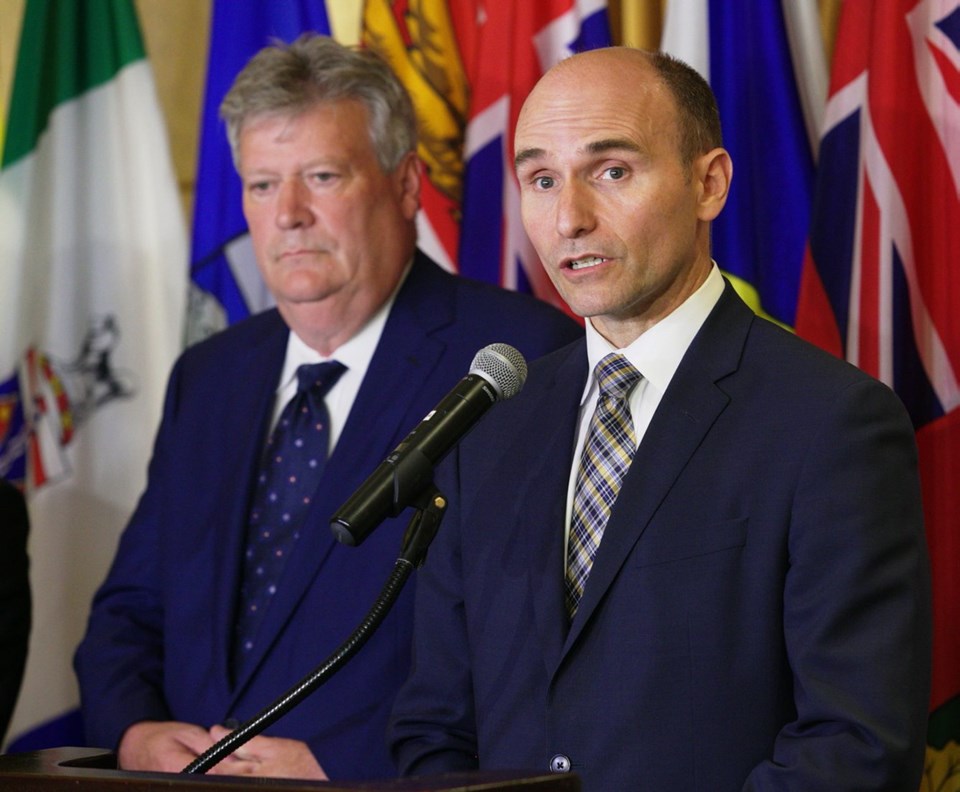 Tuesday’s outline of where a half-billion dollars in housing money will be spent is the 12th announcement in the past three months about affordable housing.
Tuesday’s outline of where a half-billion dollars in housing money will be spent is the 12th announcement in the past three months about affordable housing.
That marks a major increase in emphasis on a problem that the government didn’t start highlighting until earlier this year.
In the February budget, $355 million was earmarked for affordable housing, to be doled out over five years. By September, the B.C. Liberals had vastly increased the funding, and were keen to spend it all at once. It amounted to a seven-fold increase in the original spending plan for the current fiscal year.
The breakdown of the latest commitments shows Vancouver Island is expected to see 774 new units. The government said they are all coming “soon.”
But completion depends on the pace of construction, which might slow because of the volume of the plan. The estimate is that the 18 Island projects will be finished or underway within the next two years. Ten of them are north of the Malahat and eight — containing 548 units — are in the capital region.
Metro Vancouver, the focus of much of the growing anxiety over housing, is slated for 1,441 units, with the rest distributed around B.C. All told, the 68 projects with 2,900 units represent about 5,500 jobs.
Most of the money is being disbursed to non-profit agencies, which will attempt to address the needs of low- to moderate-income renters, seniors, the disabled, aboriginal people and other designated groups.
The various other announcements over the past few months were much smaller scale. Money was dribbled out to individual projects.
Tuesday’s developments signal the floodgates are open. Some of the earlier specific items were wrapped up and re-announced, apparently on the premise the news is so good, it has to be delivered twice.
It was the intense public debate about real-estate prices, affordability and foreign ownership that rocketed housing up the priority list this year. It led to several developments, including the three-month-old foreign-buyers tax in metro Vancouver. Some of the revenue that brings in will fund the units being promised.
The continuing demand for action prompted the government to pour more money into housing, culminating in the September followup.
So far, $79 million of the funds in the February budget has been committed to build 493 units. That’s roughly on the originally projected track of spending about $80 million a year for five years to build 2,000 units. The half-billion dollars announced in September was aimed at building 2,900 more units.
Tuesday’s news was the detailed breakdown of where they are going up. Even the hurry-up order represented by the September money is getting a hurry up. Housing Minister Rich Coleman said then the projects would be identified and approved by next March. Instead, they all got the green light in November.
Premier Christy Clark said B.C. is making progress, “but the lack of supply makes it harder all the time.”
She again begged municipalities to approve more developments.
Some of the new units will just address continually growing demand brought on by a strong economy. It’s hard to estimate how much will actually ease the pressure that has built up over the past few years.
That argument will continue as the 2017 election campaign takes shape. The NDP attacked B.C. Liberal inaction on housing and can take credit for propelling the issue.
But the burst of spending in response leaves them in an awkward position.
Last week, in promising to take up any slack that develops from federal support for co-ops expiring, housing critic David Eby said Clark has turned B.C. into a place where only the rich can thrive. “She fanned the flames of the housing crisis for years because it benefited her and her donors.”
Any more housing money between now and the May election might have to come from the federal government. A summary of consultation on a new national housing strategy was released Tuesday. It showed intense concern and Jean-Yves Duclos, minister responsible, said details are coming soon on a $2.5-billion loan program to spur more rental units.



